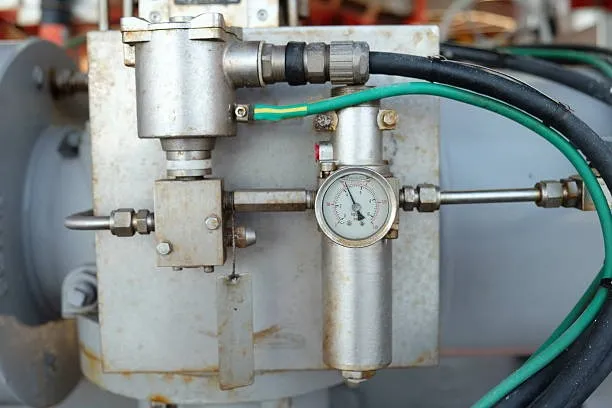
Boiler Installation in East Petersburg, PA
Replacing or installing a boiler is one of the most important investments for comfort and energy efficiency in East Petersburg, PA homes. With cold, snowy winters and older housing stock common to the Lancaster County area, a correctly specified and professionally installed boiler delivers reliable warmth, lower energy bills, and safer operation.
Why a proper boiler installation matters in East Petersburg, PA
East Petersburg winters can be long and damp, increasing demand on heating systems and exposing undersized or poorly vented boilers to premature failure. Proper sizing, correct venting for local combustion air conditions, and careful piping minimize cold spots, reduce energy waste, and prevent safety hazards like carbon monoxide. Upgrading to a high-efficiency condensing boiler also delivers measurable savings during Lancaster County winters and can improve home comfort in older, less-insulated houses.
Common boiler installation needs and issues in East Petersburg
- Aging equipment replacement: Many homes still have boilers beyond typical service life, leading to frequent repairs and rising fuel use.
- Improper sizing: Undersized boilers struggle on the coldest nights; oversized boilers short-cycle and waste energy.
- Venting and combustion air challenges: Tightening building envelopes and varied chimney conditions in older East Petersburg homes often require updated venting or sealed-combustion solutions.
- Hydronic distribution problems: Uneven heating, noisy pipes, or poor zone control indicate piping or circulator issues that are best addressed during installation.
- Fuel type conversion or optimization: Natural gas, propane, and oil are all present in the region; selecting the right system for available fuel and local code is critical.
Pre-installation assessment: what we evaluate
A thorough pre-installation assessment sets the foundation for a successful project. Key checks include:
- Home heat load calculation using current insulation, windows, and local design temperatures for East Petersburg.
- Inspection of existing boiler room, clearances, chimney or venting, and combustion air availability.
- Evaluation of distribution system: radiators, baseboards, underfloor loops, pumps, zones, and controls.
- Fuel supply verification and metering requirements for natural gas, oil, or propane.
- Local permit and inspection requirements based on Lancaster County and East Petersburg code.
Sizing and system selection
Correct sizing ensures efficiency and comfort. We recommend:
- Heat loss calculation to determine required BTU output based on East Petersburg design temps.
- Selection between condensing modulating boilers for maximum efficiency or conventional boilers when system constraints exist.
- Considering combination boilers for domestic hot water if space and demand allow.
- Matching controls and zoning hardware to the home layout to reduce short cycling and improve comfort.
Piping, venting, and code considerations
Local climate and building types in East Petersburg influence piping and venting choices:
- Proper pipe sizing and pump selection to maintain correct flow rates for existing radiators or new loops.
- Installation of air separators, dirt purges, and magnetic filters to protect the system and prolong component life.
- Review and upgrade of venting: chimney relining, direct vent, or power vent options based on appliance type and local code.
- Compliance with Lancaster County inspection standards and manufacturer venting clearances for safe operation.
The professional installation process
A typical boiler installation follows these steps:
- Site preparation: clearances, protection of floors and furnishings, and setup of temporary heating if required.
- Removal and disposal of old equipment in accordance with local regulations.
- Mechanical installation: mounting the new boiler, connecting fuel and electrical services, and installing circulation pumps, piping, expansion tanks, and valves.
- Venting installation or modification and combustion air provisions.
- Control integration and thermostat zoning setup.
- System fill, flushing, and chemical treatment as needed to remove debris and protect components.
Commissioning and safety testing
Commissioning confirms safe, efficient operation and includes:
- Pressure and leak testing of piping and vessel.
- Combustion analysis to verify proper fuel-air ratio and safe exhaust.
- Verification of relief valves, expansion tanks, and low water cutoffs.
- Testing of all zones, thermostats, and control sequences.
- Documentation of setpoints and operational checks for homeowner reference.
Manufacturer warranty registration and documentation
After successful commissioning, systems should be registered with the manufacturer to secure warranty coverage. This step commonly requires:
- Recording model and serial numbers.
- Submitting installation and commissioning dates.
- Keeping a copy of the installer’s workmanship documentation and local inspection approvals.
Post-installation customer orientation
A clear walkthrough helps homeowners get the most from their new boiler:
- Review of basic operation, thermostat programming, and zone control behavior.
- Explanation of safety features, what to monitor, and how to respond to alarms.
- Guidance on recommended filters, expansion tank checks, and drain procedures.
- Provision of a simple maintenance checklist and a copy of warranty and service records.
Expected project timeline for East Petersburg homes
Timelines vary by scope and permitting needs. Typical durations:
- Pre-install assessment and system selection: 1 to 3 days.
- Permit acquisition and scheduling inspections: often 3 to 10 business days depending on local backlog.
- Installation day(s): generally 1 to 3 days for straight swaps; 3 to 7 days for extensive piping, venting, or system conversions.
- Final inspection and commissioning: 1 day once installation is complete and ready for inspection.
Permit and inspection coordination
Permits and inspections are essential for safety and code compliance. Expect:
- Coordination with Lancaster County or East Petersburg building department for required permits.
- Submission of equipment specifications and sometimes a mechanical plan.
- Scheduling and passing a final inspection before warranty activation and final payment.
Maintenance recommendations to protect your investment
Regular maintenance extends system life and preserves efficiency:
- Annual professional tune-up including combustion check, controls verification, and cleaning.
- Regular visual checks for leaks, unusual noises, or pressure changes.
- Flushing and treatment of hydronic loops every few years depending on system condition.
- Keep combustion air openings clear and maintain recommended clearances around the boiler.


Enjoy flexible financing options that make upgrading or repairing your HVAC system easy and budget-friendly.










